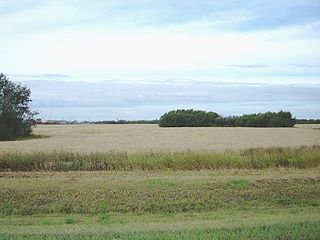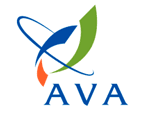Related Research Articles
Health Canada is the department of the Government of Canada responsible for national health policy. The department itself is also responsible for numerous federal health-related agencies, including the Canadian Food Inspection Agency (CFIA) and the Public Health Agency of Canada (PHAC), among others. These organizations help to ensure compliance with federal law in a variety of healthcare, agricultural, and pharmaceutical activities. This responsibility also involves extensive collaboration with various other federal- and provincial-level organizations in order to ensure the safety of food, health, and pharmaceutical products—including the regulation of health research and pharmaceutical manufacturing/testing facilities.
The Canadian Food Inspection Agency is a regulatory agency that is dedicated to the safeguarding of food, plants, and animals (FPA) in Canada, thus enhancing the health and well-being of Canada's people, environment and economy. The agency is governed by the Minister of Agriculture and Agri-Food and Minister of Health.
Agriculture and Agri-Food Canada is the department of the Government of Canada responsible for the federal regulation of agriculture, including policies governing the production, processing, and marketing of all farm, food, and agri-based products. Agriculture in Canada is a shared jurisdiction and the department works with the provinces and territories in the development and delivery of policies and programs.

Bangladesh Agricultural University, abbreviated as BAU, was established as the only university of its kind in Bangladesh in 1961. The scheme for BAU was finalised on 8 June 1961 and its ordinance was promulgated on 18 August 1961. It started functioning with the College of Veterinary Science and Animal Husbandry at Mymensingh as its nucleus. The university has six faculties and 43 departments covering all aspects of agricultural education and research.
A food safety agency or food administration is a kind of agency found in various countries and international organizations with responsibilities related to food, primarily with ensuring the safety of food sold or distributed to the population, and with ensuring that food sellers inform the population of the origins and health qualities and risks associated with food being sold.

Canada is one of the largest agricultural producers and exporters in the world. As with other developed nations, the proportion of the population agriculture employed and agricultural GDP as a percentage of the national GDP fell dramatically over the 20th century, but it remains an important element of the Canadian economy. A wide range of agriculture is practised in Canada, from sprawling wheat fields of the prairies to summer produce of the Okanagan valley. In the federal government, overview of Canadian agriculture is the responsibility of the Department of Agriculture and Agri-Food.
The Department of Agriculture, Environment and Rural Affairs (DAERA) is a government department in the Northern Ireland Executive, the devolved administration for Northern Ireland. The minister with overall responsibility for the department is the Minister of Agriculture, Environment and Rural Affairs. The department was called the Department of Agriculture and Rural Development between 1999 and 2016. The Minister of Agriculture previously existed in the Government of Northern Ireland (1921–1972), where the department was known as the Department of Agriculture for Northern Ireland or the Ministry of Agriculture. The current Minister is Edwin Poots MLA and the department's Permanent Secretary is Denis McMahon.

Motilal Madan is an Indian biotechnology researcher, veterinarian, academic and administrator. In a career spanning over 35 years, Madan published 432 research articles and policy papers in international and national reference journals—including 226 original research papers—and pioneered research in reproductive endocrinology, embryo biotechnology, In vitro fertilisation, and cloning.

Agriculture in Saskatchewan is the production of various food, feed, or fiber commodities to fulfill domestic and international human and animal sustenance needs. The newest agricultural economy to be developed in renewable biofuel production or agricultural biomass which is marketed as ethanol or biodiesel. Plant cultivation and livestock production have abandoned subsistence agricultural practices in favor of intensive technological farming resulting in cash crops which contribute to the economy of Saskatchewan. The particular commodity produced is dependent upon its particular biogeography or ecozone of Geography of Saskatchewan. Agricultural techniques and activities have evolved over the years. The first nation nomadic hunter-gatherer lifestyle and the early immigrant ox and plow farmer proving up on his quarter section of land in no way resemble the present farmer operating huge amounts of land or livestock with their attendant technological mechanization. Challenges to the future of Saskatchewan agriculture include developing sustainable water management strategies for a cyclical drought prone climate in south western Saskatchewan, updating dryland farming techniques, stabilizing organic definitions or protocols and the decision to grow, or not to grow genetically modified foods. Domestically and internationally, some commodities have faced increased scrutiny from disease and the ensuing marketing issues.
Manitoba Agriculture—officially the Department of Agriculture and Resource Development —is the department of the Government of Manitoba responsible for the agriculture and natural resources sectors in Manitoba, including agrifood, agriproduct, and food safety, as well as animal health and welfare.

The Agri-Food and Veterinary Authority of Singapore (AVA) was a statutory board under the Ministry of National Development that regulated food safety, safeguarded animal and plant health, and facilitated the agri-food and fisheries trade sectors. AVA was disbanded on 1 April 2019, with duties being transferred to other statutory boards, Singapore Food Agency, National Environment Agency, Health Sciences Authority, and National Parks Board.
President Chester A. Arthur signed the Animal Industry Act on May 29, 1884 creating the Bureau of Animal Industry (BAI), an organization that was established under the United States Department of Agriculture. It replaced the Veterinary Division that had been created by the Commissioner of Agriculture in 1883, which had taken over for the Treasury Cattle Commission, Department of Treasury.
An agricultural attaché is a diplomat who collects, analyzes, and acts on information on agriculture, agribusiness, food, and other related spheres in a foreign country or countries. Agricultural attachés may be directly employed by the sending country's agriculture ministry, or they may be employed by the foreign ministry. Typical activities of an agricultural attaché include reporting on crop conditions, food availability, domestic agricultural policy and the foreign trade outlook in agricultural commodities; negotiating food aid agreements and agricultural credit lines; implementing agricultural technical assistance programs; facilitating professional contacts, exchanges, and technology transfer; assisting in negotiating bilateral and multilateral trade agreements; and promoting the exports of agricultural and food products. In many cases, agricultural attachés may also bear responsibility for issues related to the environment, food security, food safety, fisheries, forestry, and indeed anything related to rural areas and the rural economy.
The National Centre for Foreign Animal Disease (NCFAD), located in the Canadian Science Centre for Human and Animal Health in Winnipeg, Manitoba, is part of the Canadian Food Inspection Agency’s National Centres for Animal Disease. NCFAD is co-located with the Public Health Agency of Canada’s National Microbiology Laboratory.
Karen Beauchemin is a federal scientist in Canada who is recognized as an international authority on methane emissions and ruminant nutrition. Her research helps develop farming techniques that improve how we raise cattle for meat and milk, while reducing the environmental impacts of livestock production.
Vernon Douglas Burrows was a research scientist at Agriculture and Agri-Food Canada (AAFC) and an international authority on oat breeding and utilization. He bred and registered 28 varieties of oats, including AC Gehl, the “naked oat,” which is hulless and hairless and therefore easier to process and transport. In 2001 Burrows was appointed as Member of the Order of Canada, and in 2018 he was promoted to Officer of the Order of Canada for his research that has enhanced the production and nutritional value of oat-based foods.

Ismahane Elouafi is Chief Scientist of the Food and Agriculture Organization of the United Nations (FAO). Ranked among the 20 most influential women in science in the Islamic world, she is internationally known for her work on promoting neglected and underutilized crops, use of non-fresh water in agriculture, and empowerment of women in science.
Donald A. Young was a Canadian scientist whose research greatly impacted potato production in North America, and the international French-fry industry. He is best known for developing the Shepody potato. Released in 1980, Shepody was the first potato developed specifically for the North American French fry market and quickly became popular with farmers. Young received many honours throughout his career, including the prestigious, Order of Canada.
References
- 1 2 "Outstanding Achievement Award of the Public Service of Canada - Biography". Canada Public Service Agency. 2001. Retrieved 11 November 2008.[ dead link ]
- ↑ "Initial Production Inspection". www.inspection-in-china.com.
- ↑ "Outstanding achievement award - Previous award recipients". Canada Public Service Agency. Archived from the original on 7 August 2011. Retrieved 11 November 2008.
- ↑ "Government House: Awards to Canadians" (PDF). Canada Gazette Part I. 136 (39): 2895. 28 September 2002. Archived from the original (PDF) on 16 July 2011.
- ↑ "Consular Notice". Consulate general of France in Vancouver. Archived from the original on 20 July 2011. Retrieved 11 November 2008.